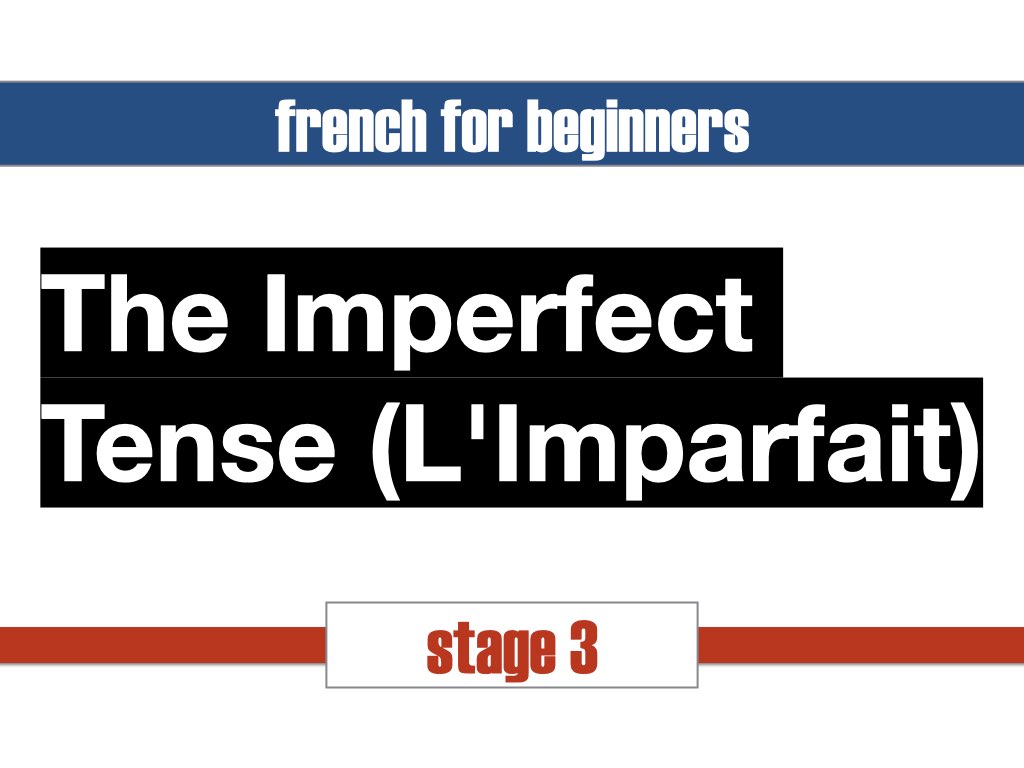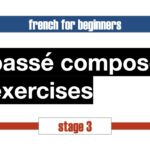The Imperfect Tense (L’Imparfait)
Welcome to our lesson on the French imperfect tense, or “l’imparfait,” a crucial aspect of French grammar used to describe past actions that were ongoing or habitual, or to set the scene in the past. This lesson is designed to help English-speaking students grasp and practice the formation and use of the imparfait.
Understanding L’Imparfait
Formation
The imperfect tense is formed by taking the first person plural (nous) form of the present tense, dropping the -ons ending, and adding the following endings: -ais, -ais, -ait, -ions, -iez, -aient.
- je: -ais
- tu: -ais
- il/ elle/ on: -ait
- nous: -ions
- vous: -iez
- ils/elles: -aient
For example, the verb “chanter” (to sing) in the imparfait would be:
| CHANTER ( to sing ) | translation |
|---|---|
| je chantais | I was singing |
| Tu chantais | You were singing |
| il / elle / on parlait | He/She/It was singing |
| nous chantions | We were singing |
| vous chantiez | You were singing |
| ils / elles chantaient | They were singing |
⚠️ Exception: The verb “être” (to be) is an exception in the imperfect tense. Instead of following the regular formation rule, it has its unique conjugation:
| ÊTRE ( to be ) | translation |
|---|---|
| j’étais | I was |
| Tu étais | You were |
| il / elle / on était | He/She/It was |
| nous étions | We were |
| vous étiez | You were |
| ils / elles étaient | They were |
Usage
The imparfait is used to express:
-
Ongoing actions or states of being in the past:
- Elle lisait un livre. She was reading a book.
- Les enfants jouaient dehors. The children were playing outside.
- Il faisait froid. It was cold.
-
Habitual actions in the past:
- Il mangeait toujours au même restaurant. He always ate at the same restaurant.
- Nous regardions le même film tous les vendredis. We used to watch the same movie every Friday.
- Elle portait toujours une écharpe bleue. She always wore a blue scarf.
-
Background information in storytelling:
- Le ciel était sombre et menaçant. The sky was dark and threatening.
- Les oiseaux chantaient chaque matin. The birds sang every morning.
- Il y avait un vieux chêne au centre du parc. There was an old oak tree in the center of the park.
🍀 exercises 🍀
Exercise 1: Conjugation
Conjugate the following verbs in the imparfait.
Exercise 2: Fill in the Blanks
Exercise 3: Fill in the Blanks
Exercise 4: Translate to French
Translate the following sentences into French, using the imparfait.
- We used to eat at my grandmother’s every Sunday
- You were studying French last year.
- They were playing outside.
- I was young and naive.
- She was taking a long walk every morning.


